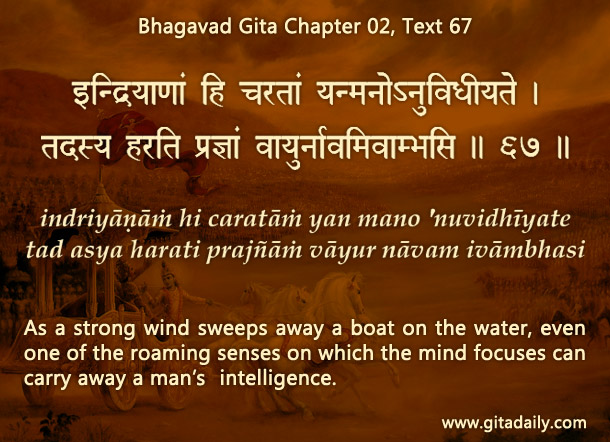Suppose we are driving along a dangerous road. If we are careless and let ourselves become distracted by an incoming phone call, we may not notice a slippery patch or a sharp turn. Our car may skid off the road and we will meet with a disastrous accident.
Danger is the possibility of trouble. Disaster means the occurrence of that trouble. The dangerous doesn’t have to become disastrous, but it becomes when we are incautious. Distraction paves the path from danger to disaster when we are driving – and when we are trying to grow spiritually too.
When we face sensual temptations, resisting them is not easy. But at least if we are aware of their presence and dangerousness, we can prepare ourselves to resist them. We can prepare by keeping ourselves intellectually alert to dangers and by devotionally absorbing ourselves in Krishna, the all-attractive supreme reality, who is the source of the highest happiness.
However, if we are incautious and let ourselves get diverted, then the Bhagavad-gita (02.67) warns that passing desires can become overwhelming: just as a storm can sweep away a boat, a storm of desire can sweep our intelligence away, and then sweep us away, if we recklessly let our mind dwell on tempting sense objects presented by our roaming senses.
Thankfully, we can prevent such disaster by cautiously avoiding contemplation on alluring objects. While living in the material world, we will inevitably face many temptations. We can’t close our eyes and block out all tempting objects, but we can cultivate vigilance. When we know in advance that temptations may allure and degrade us, we can be conscious and cautious. We can equip ourselves with scripturally-guided intelligence and with practices for rapidly and readily remembering Krishna.
When we are thus soundly equipped, we can navigate through danger without meeting disaster.
To know more about this verse, please click on the image
Explanation of article:
Podcast:


diversion of mind causes disasters